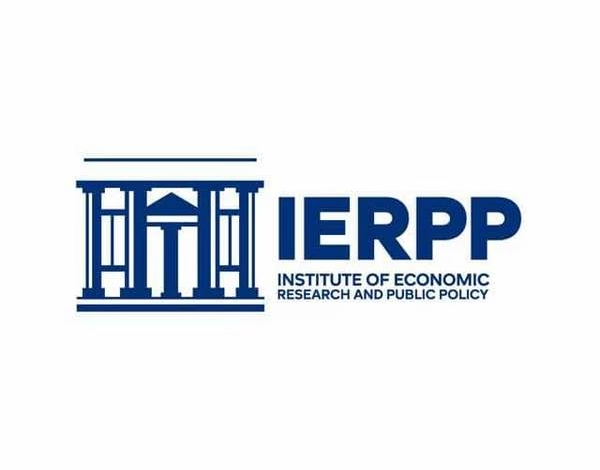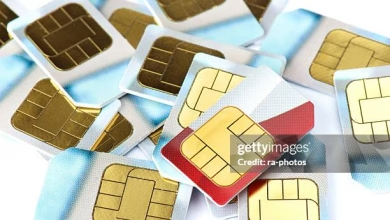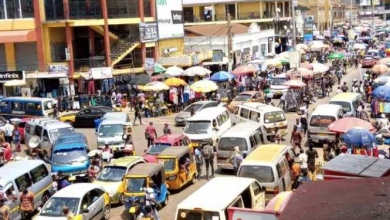IERPP Calls for Public Audits of Seized Assets to Ensure Transparency and Accountability

- The IERPP calls for clear management and reinvestment of seized assets to prevent corruption
- The operation exposed a network of financial crimes linked to illegal mining and money laundering
- The institute proposes independent audits, digital tracking, and reinvesting assets into public services
The Institute for Economic Research and Public Policy (IERPP) is urging for immediate public audits of assets seized by Ghanaian authorities in major criminal investigations.
This call comes after the recent raid on a warehouse in Sapeiman, a suburb of Accra, where National Security operatives discovered large sums of cash, counterfeit US dollars, and suspected gold bars.
The operation exposed a complex network of financial crimes related to illegal mining and money laundering. While the government has hailed the raid as a significant success, the IERPP has raised concerns over the absence of a clear framework to manage and reinvest the seized assets.
“Without public audits, these resources risk being lost to bureaucratic negligence or being recycled into the criminal networks they were taken from,” said Professor Isaac Boadi, Executive Director of the IERPP. “The people of Ghana deserve to know how these assets will be used for the nation’s benefit.”
National Security officials stated that the raid resulted in the seizure of undisclosed amounts of local and foreign currency, counterfeit US banknotes, and gold bars believed to be linked to illegal small-scale mining. The IERPP insists that unless these assets are publicly accounted for, the cycle of corruption and lack of transparency will continue. The call for audits comes amidst a history of high-profile seizures in Ghana, where accountability has often been lacking:
- In 2006, 2,300 kilograms of cocaine linked to the MV Benjamin vessel disappeared despite several arrests, with only one conviction, and questions over the cocaine’s fate remain.
- In 2016, another vessel with the same name was caught with 2,310 kilograms of cocaine at Tema Port. Although 11 suspects were arrested, the case stalled, and the drugs’ whereabouts remain unknown.
- In 2018, counterfeit dollars were used to purchase illegally mined gold smuggled into Ghana. Although seven foreign nationals were arrested, no audit was conducted on the seized assets, and the suspects were deported without trial.
- In 2021, a passenger from Brazil was arrested at Kotoka International Airport with two kilograms of cocaine. While convictions were made, no investigations into the wider drug network were pursued.
- In 2023, 1.8 tons of cocaine and $2 million in counterfeit dollars were seized at Tema Port. Despite arrests, only two convictions were made, and there is no public record of the seized drugs and cash.
Professor Boadi stated, “The pattern is clear: spectacular seizures, fleeting headlines, and no accountability.”
The IERPP warned that illicit funds from such operations distort the economy, inflate real estate prices, and undermine legitimate businesses. “The Sapeiman raid must not become another entry in this cycle,” Boadi emphasized.
The institute also criticized contradictions in the government’s approach to economic transparency. While supporting the “Goldbod” initiative to stabilize the economy, the government has done little to trace gold seized from criminal operations. “If the government can track gold in oil deals, why can’t it audit gold seized from criminals?” Boadi questioned.
To address these gaps, the IERPP has proposed a three-pronged strategy:
- Independent Audits: A non-partisan committee should publicly disclose the value, condition, and intended use of confiscated assets, ensuring transparency and deterring corruption.
- Digital Tracking: A tamper-proof, real-time system should be implemented to log the movement and storage of seized items, maintaining a verifiable chain of custody.
- Asset Reinvestment: Funds from seized assets should be directed toward public goods like healthcare, education, and anti-drug programs, with gold linked to illegal mining being used to fund infrastructure in affected communities.
As National Security continues its search for those behind the Sapeiman operation, the IERPP’s call for accountability is gaining support among citizens frustrated with unfulfilled promises.
“For Ghana to make progress, accountability must replace opacity, and seized assets must serve the public, not criminals,” concluded Boadi.






